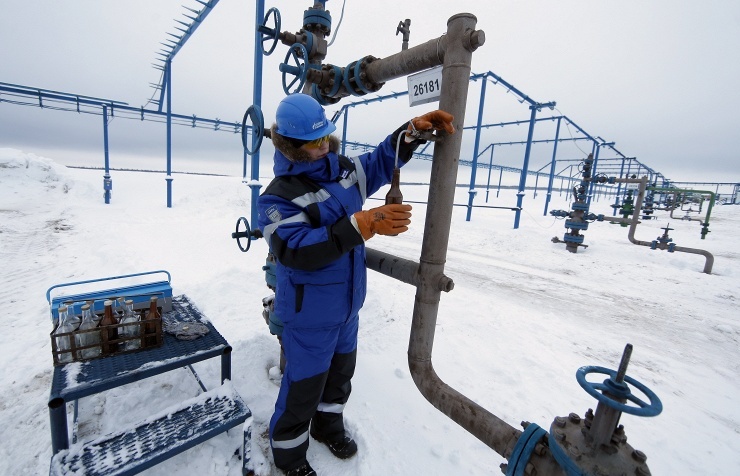Russia will not increase its oil output in 2016 compared with last year, the country’s Energy Minister Alexander Novak said Thursday.
“We don’t plan to increase production in 2016, which means forecasted output in 2016 will equal 2015 level,” he said.
Novak also said he considers the initiative to stabilize oil output at January 2016 level as reasonable.
Currently negotiations on potential oil production freeze are under way globally. Among those participating in the talks are Saudi Arabia and Russia. According to the data reported by Russia’s Energy Ministry, the sides are ready to keep January 2016 production level for the whole year in case other global oil producers join the initiative.
As TASS reported earlier the agreement on oil output freeze may increase average production in Russia by 1.5% compared with average 2015 production.
Lack of agreement on oil production stabilization may extend low oil prices period
According to Alexander Novak, lack of the agreement on oil production stabilization may extend low oil prices cycle until 2016-2017 and further on.
“Offer surplus over demand will decline quicker on account of the demand growth if production is at least not increased, as four of us agreed in Doha, and if the majority of countries do not scale up production. Competition will continue if countries fail to agree upon that. Those capable of increasing will boost [production] further on and the low prices cycle will last longer and may cover 2016, 2017, and so on. In case the offer on the market is not increased, then we will be able to lower this imbalance by 1.3-1.4 mln barrels daily. According to experts’ estimates, it is about 1.6-1.8 mln barrels [daily] at present,” the minister said.
Oil production stabilization arrangements may be formalized in mid-March
Oil production stabilization arrangements may be formalized in mid-March at the meeting of OPEC and non-OPEC states, Russia’s Energy Minister went on to say.
“As far as we understand, OPEC states plan to hold a ministerial meeting of OPEC and non-OPEC countries in mid-March and these decisions can be formalized there in some joint declarations or joint documents. Proactive consultations at the country level are underway now,” Novak said.
Iran’s participation in stabilization of oil production is still under discussion
The participation of Iran in the stabilization of oil production requires an individual approach and is still under discussion, Russian Energy Minister Alexander Novak told journalists, adding Russian-Iranian joint projects in the energy sector are planned for the discussion in March in Iran.
“The topic if Iran’s participation is still in the stage of discussion and negotiations. It involves those countries that went to Iran. I think that there may be different options for Iran. We hear that they are not willing to actually reduce, to freeze the volume of production, given that the base is fairly low in comparison with other producers. That is why an individual and objective assessment is necessary,” he said.
Novak said that he is going to visit Iran not to discuss this subject, but the development of trade and economic cooperation, as co-chairman of the Russian-Iranian intergovernmental commission. “We will hold an intergovernmental commission in Tehran, though not in March, a bit later. In March, at the meeting of co-chairmen we plan to discuss the current situation with the implementation of our joint projects. Perhaps we will meet with Iran’s Oil Minister Bijan Namdar Zanganeh. We have a large list of energy-related issues, as well as oil and gas industry,” Novak said.
